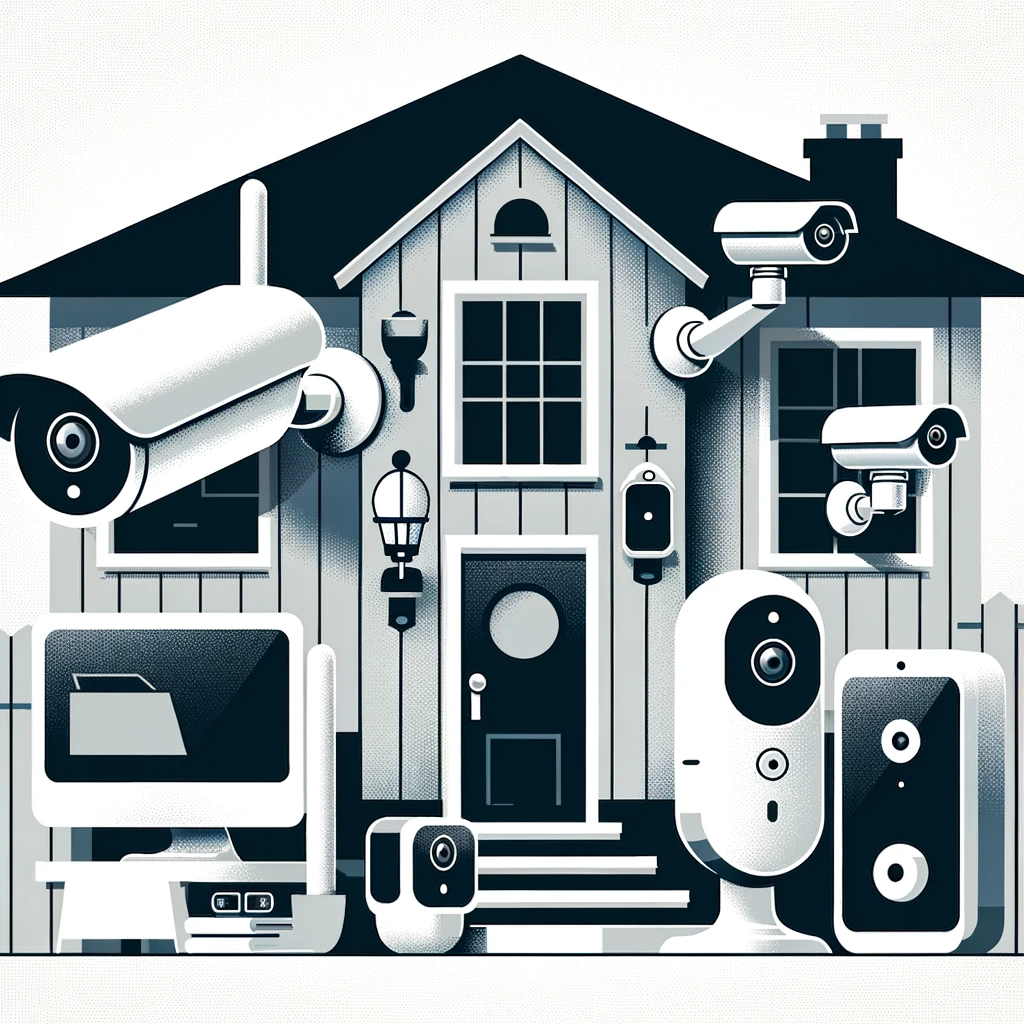Habits of Highly Organized People That You Should Adopt Right Now!

Why Organized Habits are Important
Welcome! Today, we’re going to talk about something that might not be the most exciting topic, but trust me, it’s a game-changer: organized habits. You might be wondering, “Why should I bother being organized?” Well, I’m here to tell you that being organized is more than just having a clean and tidy space. It’s a key to a more efficient and productive life. Let’s dive in and discover why organized habits are so important:
1. Saves Time:
- When you have an organized system in place, you spend less time searching for things and more time actually doing them.
- Having a designated place for everything means you won’t waste precious minutes digging through cluttered drawers or cabinets.
2. Reduces Stress:
- We’ve all experienced that overwhelming feeling when we can’t find something important. Being organized helps eliminate this stress.
- When your environment is clutter-free and everything has a proper place, you’ll feel calmer and more in control.
3. Boosts Productivity:
- An organized workspace allows you to focus on the task at hand without distractions.
- With clear priorities and a structured schedule, you can stay on track and accomplish more in less time.
4. Improves Health:
- Did you know that a cluttered and disorganized environment can negatively impact your mental and physical well-being?
- By maintaining an organized space, you create a healthier and more hygienic living and working environment.
5. Enhances Efficiency:
- When you have a system in place, you can streamline processes and eliminate unnecessary steps.
- An organized approach to tasks and projects allows you to work smarter, not harder.
Now that you understand the importance of organized habits, you might be wondering how to develop them. Don’t worry, we’ll explore that in the next section. Remember, being organized is a skill that can be learned and cultivated. So
What being Highly Organized Entails
Have you ever wondered how some people seem to effortlessly manage their time, stay on top of their tasks, and have everything in order? The secret lies in being highly organized. Being highly organized means more than just having a neat desk or a color-coded calendar. It involves adopting a systematic approach to managing your time, space, and resources. Here are some key elements that make up the essence of being highly organized:
- Clear Priorities: Highly organized individuals have a clear understanding of their priorities. They know which tasks are most important and focus their time and energy on those activities. By giving priority to what truly matters, they are able to accomplish more and avoid wasting time on unimportant tasks.
- Effective Time Management: Time is a valuable resource, and highly organized individuals know how to make the most of it. They prioritize their tasks, set realistic deadlines, and create schedules to ensure they complete their work efficiently. By managing their time effectively, they can juggle multiple responsibilities without feeling overwhelmed.
- Streamlined Systems: Being highly organized means having streamlined systems in place. It involves creating effective processes and routines to handle different aspects of life, such as managing finances, storing documents, or organizing personal belongings. These systems help save time, reduce stress, and increase productivity.
- Attention to Detail: Attention to detail is a hallmark of highly organized individuals. They pay close attention to the small things that others might overlook, ensuring accuracy and preventing mistakes. This attention to detail helps them stay organized and maintain a high level of efficiency.
- Proactive Planning: Highly organized individuals are proactive in their approach. They anticipate future needs, plan ahead, and take necessary steps to prevent problems or delays. By planning in advance, they can avoid last-minute rushes and handle unexpected situations with ease.
- Effective Communication: Being highly organized also involves effective communication skills. These individuals are clear and concise in their communication, ensuring that everyone involved understands expectations, deadlines, and responsibilities. Good communication minimizes confusion and helps maintain a smooth workflow.
Remember, being highly organized is not about being perfect or rigid. It
III. How to Develop an Organizational System
Having an organized system in place can make a world of difference in your daily life. It can reduce stress, increase productivity, and bring a sense of calm and control. But how do you go about developing an organizational system that works for you? Here are some tips to get you started:
1. Set Clear Goals
– Before you start organizing, take some time to think about what you want to achieve. What are your priorities? What areas of your life do you want to focus on? Setting clear goals will help you stay motivated and give you a sense of direction.
2. Declutter and Simplify
– One of the first steps towards organization is decluttering your space. Get rid of anything you no longer need or use. Simplify your belongings and only keep what is essential. This will make it easier to find things and maintain order.
3. Create a Routine
– Establishing a daily routine can help you stay organized and on track. Set aside specific times for tasks like checking emails, doing laundry, or meal planning. Stick to your routine as much as possible to create a sense of structure and predictability.
4. Use Tools and Systems
– Take advantage of technology and organizational tools to help you stay organized. Use smartphone apps, calendars, or task management systems to keep track of important dates, deadlines, and to-dos. Find what works best for you and integrate it into your daily life.
5. Prioritize and Delegate
– Learn to prioritize tasks and focus on what is most important. Delegate tasks that can be done by others or automate certain processes if possible. This will free up your time and energy for more meaningful and high-priority tasks.
6. Develop Good Habits
– Building good organizational habits takes time and practice. Start small and gradually incorporate new habits into your routine. For example, make it a habit to tidy up your workspace at the end of each day or create a system for dealing with paperwork as it comes in.
7. Regularly Review and Adjust
– Your organizational system needs to be flexible and adaptable to your needs. Set aside time periodically to review and adjust your system as necessary. Take note of what is working well and what
Benefits of Being Highly Organized
Being highly organized isn’t just about having a clean desk or a tidy house. It’s about creating a system that allows you to be more efficient and productive in all aspects of your life. Here are some of the many benefits that come with being highly organized:
- Increased productivity: When you have a well-organized system in place, you can easily find what you need and complete tasks more quickly. This means you’ll be able to accomplish more in less time.
- Less stress: Clutter and disorganization can lead to feelings of overwhelm and stress. By organizing your space and your tasks, you’ll create a calmer and more peaceful environment.
- Better time management: Highly organized individuals are able to prioritize their tasks and allocate their time effectively. This allows them to focus on what’s important and minimize time wasted on unimportant or trivial matters.
- Improved focus: When your physical and digital spaces are organized, you’ll have fewer distractions and better concentration. This will help you stay focused on the task at hand and increase your productivity.
- Enhanced decision-making: Being organized allows you to have a clear overview of your responsibilities and deadlines. This makes it easier to make informed decisions and prioritize tasks based on their importance and urgency.
- Greater efficiency: With an organized system, you can streamline processes and eliminate unnecessary steps. This leads to increased efficiency and helps you complete tasks more quickly and effectively.
- Improved health and well-being: A cluttered and disorganized environment can negatively impact your mental and physical health. By creating an organized space, you’ll promote a sense of calm and clarity, which can improve your overall well-being.
- Increased confidence: When you’re organized, you feel more in control of your life. This boosts your confidence and self-esteem, as you know you have the tools and systems in place to handle whatever comes your way.
- Better relationships: Being organized allows you to be more reliable and dependable. You’ll be able to meet deadlines,
V. Common Challenges of Being Highly Organized
Being highly organized is no easy feat, and it comes with its fair share of challenges. While the benefits are substantial, it’s essential to recognize and address the common hurdles that may arise along the way. Here are some challenges you may encounter as you strive to maintain a highly organized lifestyle:
- Time management: Juggling multiple tasks and responsibilities can be overwhelming, leading to poor time management. It’s crucial to allocate time effectively and prioritize tasks to stay on top of your organizational goals.
- Procrastination: The temptation to put off tasks, especially those that seem tedious or mundane, can derail your organizational efforts. Combat procrastination by breaking tasks into smaller, manageable chunks and rewarding yourself upon completion.
- Information overload: In today’s digital age, we are bombarded with an overwhelming amount of information. It can be challenging to filter through emails, messages, and notifications, leading to a cluttered mind and disorganized workflow. Implementing systems for managing and organizing information can help you stay focused and efficient.
- Clutter accumulation: Despite your best intentions, clutter has a way of sneaking back into your life. Whether it’s physical clutter in your home or digital clutter on your devices, it’s vital to regularly declutter and reassess your belongings and digital files to maintain a streamlined environment.
- Perfectionism: Striving for perfection can hinder progress and lead to unnecessary stress. It’s important to recognize that perfection is unattainable and instead aim for excellence. Embrace progress over perfection to maintain your organizational systems without becoming overwhelmed.
- Adapting to change: Life is constantly evolving, and unexpected events or transitions can disrupt even the most organized systems. Learning to adapt and adjust your organizational strategies to accommodate changes will help you stay on track and navigate new circumstances with ease.
- Balancing work and personal life: It can be challenging to achieve a harmonious balance between work obligations and personal life. Being highly organized requires allocating time for both professional and personal priorities. Establish boundaries and set aside dedicated time for self-care, relationships, and leisure
Strategies for Overcoming Organizational Challenges
Being highly organized may come with its fair share of challenges, but fret not! With the right strategies, you can overcome these hurdles and maintain a well-organized lifestyle. Here are some tried-and-true methods to help you conquer any organizational challenge that comes your way:
- Prioritize and focus: One of the biggest challenges of being highly organized is managing your time effectively. To overcome this, prioritize your tasks and focus on one thing at a time. Break down bigger tasks into smaller, more manageable ones, and tackle them one by one.
- Plan ahead: Planning is key when it comes to staying organized. Set aside some time each day or week to plan and schedule your tasks. Use a digital calendar, planner, or even a simple to-do list to keep track of your commitments and deadlines. This way, you’ll always know what needs to be done and when.
- Declutter regularly: Clutter can quickly derail an organized lifestyle. Make it a habit to declutter your physical and digital spaces regularly. Get rid of items you no longer need, organize your files, and create a system for keeping things tidy. A clutter-free environment will boost productivity and help you stay focused.
- Establish routines: Routines are powerful tools for staying organized. Create daily, weekly, and monthly routines that suit your lifestyle. Set specific times for tasks like cleaning, meal planning, and self-care. By sticking to a routine, you’ll reduce decision fatigue and create a sense of order in your life.
- Delegate when possible: It’s important to recognize that you don’t have to do everything yourself. Delegate tasks to others whenever possible. Whether it’s at work or home, identify tasks that can be outsourced or shared. Trusting others with responsibilities will free up your time and reduce stress.
- Learn to say no: Overcommitting is a common pitfall for highly organized individuals. It’s important to set boundaries and learn to say no when you’re already stretched too thin. Prioritize your own well-being and remember that it’s okay to decline additional responsibilities if they don’t align with your goals or values.
- <
Frequently Asked Questions:
1. What are some common habits of highly organized people?
Highly organized people often exhibit various habits that contribute to their efficiency and productivity. Some common habits include:
- Maintaining a well-structured daily routine and schedule.
- Utilizing to-do lists and setting clear goals.
- Keeping an organized physical and digital workspace.
- Practicing regular decluttering and minimalism.
- Prioritizing tasks and focusing on one thing at a time.
- Developing effective time management skills.
- Regularly reviewing and updating their systems for improvement.
2. How can I become more organized and adopt these habits?
If you wish to become more organized and adopt the habits of highly organized individuals, consider the following tips:
- Start by creating a daily routine and sticking to it.
- Use a planner or digital tools to manage your tasks and set specific, achievable goals.
- Spend time decluttering and organizing your physical and digital spaces.
- Practice mindfulness and intentionality in your actions.
- Implement time-blocking techniques to manage your time effectively.
- Break tasks into smaller, manageable steps



